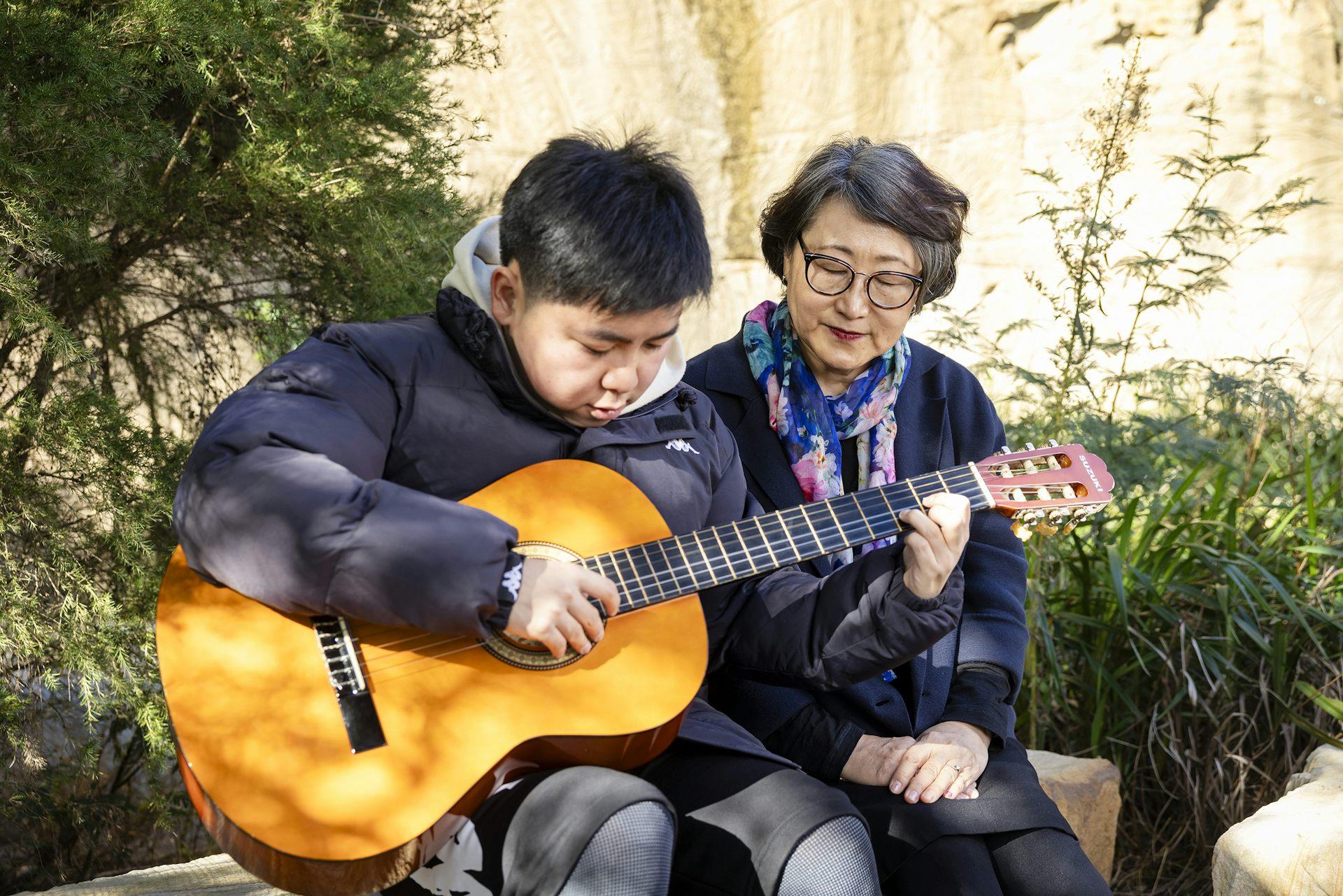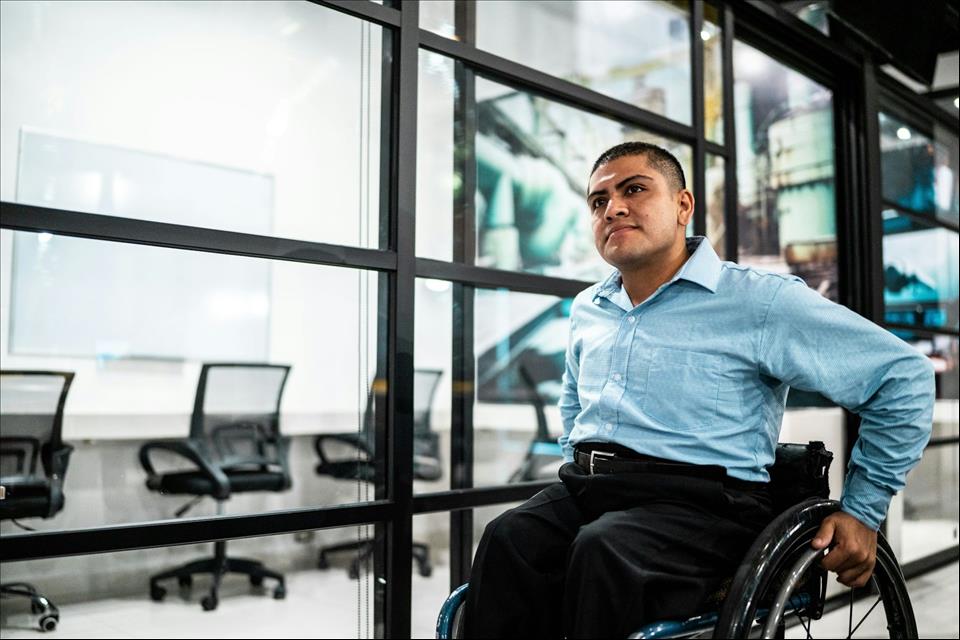Social Connections, Service Access, Language: How Disability Can Make Things Even Harder For Refugees
We don't have concrete data on how many refugees with disability have settled in Australia. But we know numbers have increased in recent years after a 2010 parliamentary inquiry recommended a policy change to reduce barriers to refugees with disability settling in Australia.
Still, there's a significant research gap on the intersection of disability and migration in Australia. There's also little international research on refugees with disability .
Through surveys and interviews, we explored the experiences of settlement and integration for refugees with disability in Australia.
Our 75 survey respondents were permanent residents who had lived in Australia for an average of 4.3 years. They were mostly from Iraq, Syria and Afghanistan.
For the survey, we used questions from our previous research with refugees conducted by Western Sydney University and Settlement Services International (SSI ). This allowed us to put the experiences of refugees with disability into context, comparing them with refugees more broadly.
Our findings suggest intersecting issues – across domains including social connections, housing, and English language learning – influence the settlement and integration trajectories of refugees with disability in Australia.
Some good newsAmong refugees with disability, 72% of respondents said they felt part of the Australian community always or most of the time. Some 65% rated their overall settlement experience in Australia as good or very good.
These two percentages are lower than what refugees in general reported in our previous research in 2021 , wherein 87% felt part of the community and 83% had an overall positive settlement experience.
Our new research also indicates refugees with disability gain important support from their own communities.
They were more likely to feel supported or given comfort by their national and ethnic community (54%) than refugees in general (38%) in our previous research .
In their religious communities, 46% of refugees with disability felt supported. This is compared to 27% of refugees generally in our earlier research .
As Haneen, a proxy respondent for and sister of Jamal, a 56-year-old man with disability from Iraq, explained:
A nuanced pictureDeveloping connections outside their own communities posed significant challenges for refugees with disability. Most found it hard or very hard to make friends in Australia (77%), to talk to their Australian neighbours (76%) and to understand Australian ways or culture (68%).
These figures were much higher than what refugees more broadly reported in our previous research : 29%, 31% and 25% respectively.
Refugees with disability said English language difficulties, compounded by experiences of disability, hampered opportunities to develop mixed social networks.
Generally, they also faced significant difficulties accessing government services. Reported reasons for this included language barriers (75%), problems using government mobile apps such as Medicare and MyGov (62%), long wait times for appointments (60%) and transport difficulties (58%). These were much higher rates than for refugees generally in our previous research .
Refugees appreciated the range of disability supports available in Australia. At the same time, they reported challenges navigating these services. Even when they accessed them successfully, some faced challenges such as inadequate hours of support from the National Disability Insurance Scheme (NDIS).
Adnan, from Afghanistan, described what would have helped him and his brother, Yazan, who has cerebral palsy:

Refugees with disability we spoke to described a range of challenges. Eden Connell
Our respondents shared similar difficulties finding housing as other refugees . However, they were less satisfied with various aspects of their homes (for example, the number, size and accessibility of rooms).
Refugees with disability appeared strongly motivated to learn English, yet reported barriers accessing adult learning programs such as the Adult Migrant English Program . These barriers included unsuitable delivery options (for example, online-only classes), being unable to sit for long periods, and trouble with memory and learning.
Breaking down barriersThe disability royal commission highlighted that refugees with disability face a range of challenges when trying to access disability and mainstream services. As the review from the commission notes:
The NDIS has developed a CALD strategy for 2024–28 which outlines a series of actions to improve access by migrants and refugees with disability. This will be a positive step if implemented in full.
Although our sample size was small, our research underscores the intersecting barriers that hinder inclusion for refugees with disability. Challenges around social connections, engagement with services and other domains may be magnified by experiences of disability.
Australia has obligations under international conventions and domestic laws and policies to protect the rights of refugees and people with disability .
We urgently need policy frameworks and systems that explicitly respond to the intersecting opportunities and challenges experienced by refugees with disability.

Legal Disclaimer:
MENAFN provides the
information “as is” without warranty of any kind. We do not accept
any responsibility or liability for the accuracy, content, images,
videos, licenses, completeness, legality, or reliability of the information
contained in this article. If you have any complaints or copyright
issues related to this article, kindly contact the provider above.
Most popular stories
Market Research

- NOVA Collective Invest Showcases Intelligent Trading System7.0 Iterations Led By Brady Rodriguez
- 1Inch Unlocks Access To Tokenized Rwas Via Swap API
- Ethereum-Based Meme Project Pepeto ($PEPETO) Surges Past $6.5M In Presale
- USDT0 And Xaut0 Are Now Live On Polygon
- Falcon Finance Announced $FF And Community Sale On Buidlpad
- Japan Halal Food Market Size To Surpass USD 323.6 Billion By 2033 With A CAGR Of 8.1%






















Comments
No comment